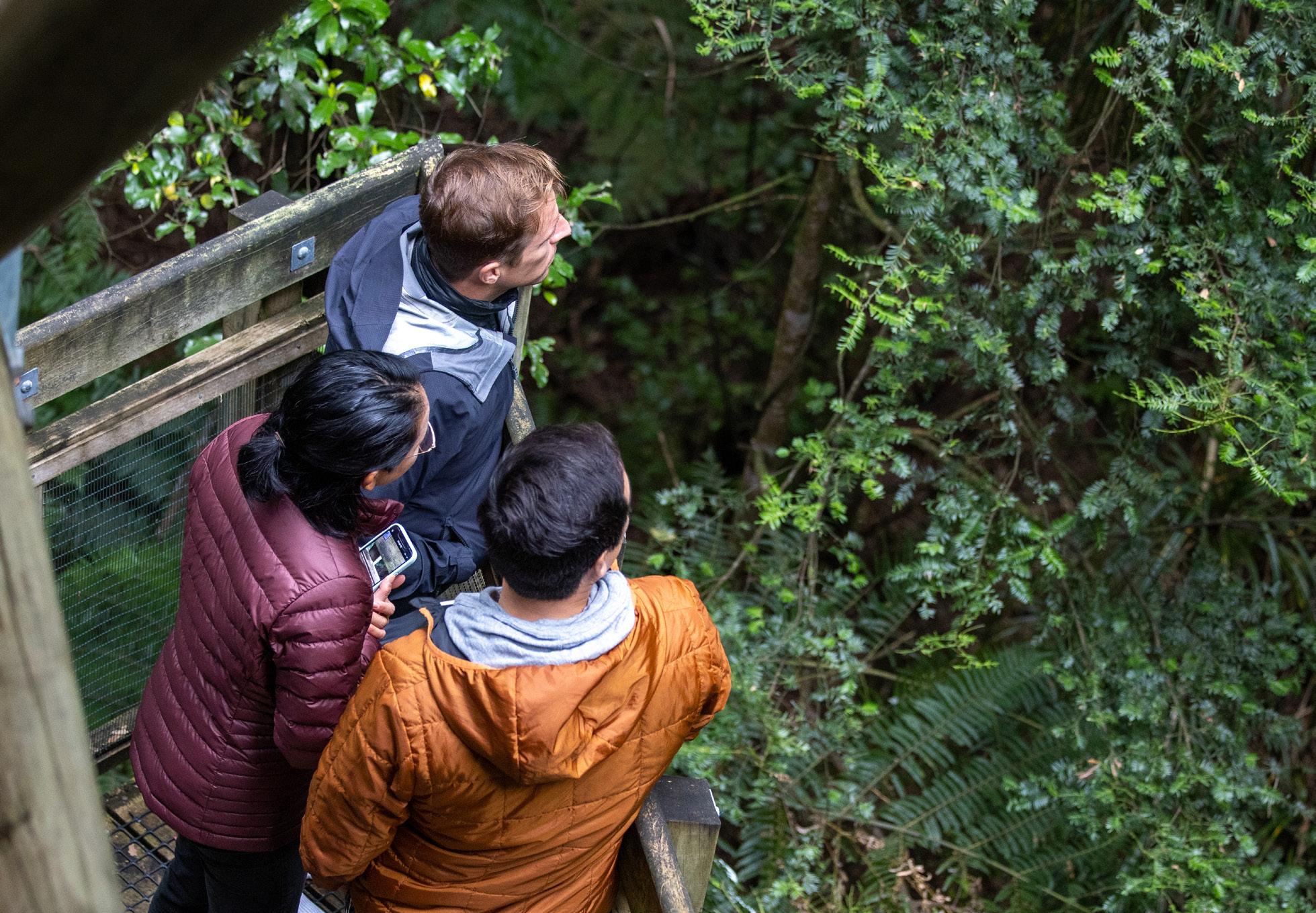
3 minute read
From saving to shaping: A new era for conservation
In this transformative moment for life on Earth, conservation must move beyond protecting what remains to imagining and shaping what comes next.
The Rob Walton School of Conservation Futures — the newest school in the Rob Walton College of Global Futures within the Julie Ann Wrigley Global Futures Laboratory — represents an urgent reimagining of conservation science and practice for a rapidly changing planet.
At its core, this new paradigm recognizes the challenges facing biodiversity are deeply enmeshed with human systems. The accelerating pressures of climate change, urbanization and global trade have fundamentally altered ecosystems, often beyond the realm of a prior state. Rather than striving to recreate the past, the new School of Conservation Futures aims to respond with foresight, imagination and resolve.
This new conservation ethos is distinguished by five tenets.
First, it is planetary in scope.
Conservation can no longer be confined by geographic or disciplinary boundaries. What happens in one part of the world — whether in the oceans, forests or atmosphere — reverberates globally. The new School of Conservation Futures recognizes that to protect life on Earth, we must understand and engage with the planet as one interconnected system.
Second, it is inclusive.
Too often, conservation as a practice has been the domain of a privileged few. The new School of Conservation Futures affirms that lasting solutions must be shaped collectively, especially by historically underrepresented, local and Indigenous communities.
Third, it is forward-looking.
Traditional conservation has often aimed to preserve the past. By contrast, the new school asks what futures we wish to design and what ecological function will thrive within them. It embraces innovative ecosystems, engineered resilience and adaptive management strategies as tools of foresight.
Fourth, it embraces transdisciplinary collaboration.
The scale and complexity of today’s challenges demand an integrative approach. The new school convenes ecologists, climate scientists, engineers, ethicists, policymakers and community leaders in pursuit of shared goals. It transcends disciplines to foster a new conservation literacy that combines human values with scientific rigor.
Finally, it is hopeful.
Not naively, but deliberately. In the face of ecological loss and political gridlock, the new School of Conservation Futures holds steadfast the idea that conservation can be a force of justice and renewal. Hope, then, is not a passive feeling, but an active stance.
At the Julie Ann Wrigley Global Futures Laboratory, we have embraced this ethos because the stakes could not be higher. Planetary challenges demand planetary solutions. Once narrowly defined, conservation has become a critical lever in shaping a more equitable and resilient future. The new School of Conservation Futures does not pretend the road ahead will be easy. Rather, it begins with a simple yet radical proposition: The future is not something to endure, but something we can and must design, together and without delay.











